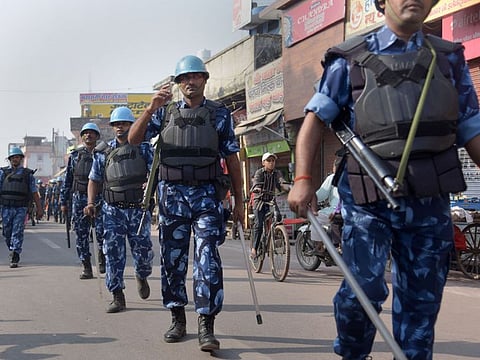Ayodhya verdict could bring closure for Indians
Muslims appear to have accepted ruling in larger interest of peace in country

The Indian Supreme Court has passed the final judgement on an intensely divisive issue in the country’s politics and, to its credit, most Indians seem to have accepted the ruling.
The court clearly ruled in favour of the majority Hindu community in the decades-old Babri Masjid issue, granting the entire 2.77 acres (1.12 hectares) of disputed land to Hindus to build a temple.
It also asked the government to give Muslims 5 acres (2 hectares) of land in Ayodhya for the construction of a mosque. By doing this, the court seems to hope that it has struck a delicate balance as far as both communities are concerned.
Some in India believe the site of the Babri Masjid in Ayodhya, which was destroyed by Hindu zealots in 1992, was the birthplace of the Hindu deity Ram, and that there had been a temple at that site that was demolished in the 16th century, during Mughal rule, to build the mosque.
While many Muslims in India may still be divided over the verdict, they appeared to have accepted the ruling in the larger interest of peace in the country. Those who disagree with it could be seeing it from the prism of what the ruling means for their place and identity in India, fearing that, if one mosque could be wantonly destroyed and the court could order the construction of a temple in its place, then what is the guarantee that other historical edifices associated with Muslims and other minorities would not suffer the same fate?
Which brings us to the actual destruction of the mosque itself.
The court clearly said that the demolition of the mosque was an “egregious violation of the rule of law”, and directed the authorities, even back in 2017, to expedite the process of holding accountable those who carried it out in 1992. That destruction led to nationwide riots and left more than 2,000 people dead, mostly Muslims.
There is a palpable sense in India to move on from the Ayodhya issue, which has blighted India’s politics and communal harmony for decades. Indian Prime Minister Narendra Modi has rightly said that the verdict should not be seen as a win or loss for anybody or any community — and Indians across faith and creed have largely reacted with remarkable restraint and maturity following the verdict.
A natural corollary of that sentiment would be to assiduously follow up the separate criminal cases pending before top courts in India over the destruction of the Babri Mosque and bring the perpetrators to justice, in line with the Supreme Court’s latest order.
The hope is that this ruling will bring closure, and that no such incident that violates the social and communal fabric of India will ever be allowed to occur again.
Sign up for the Daily Briefing
Get the latest news and updates straight to your inbox



